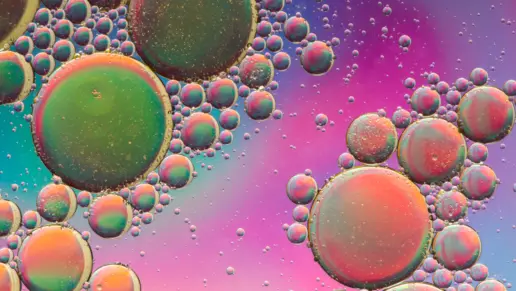What is Ibogaine?
Ibogaine is a naturally occurring substance found in the iboga plant native in parts of Africa. It’s used in traditional spiritual ceremonies due to its psychedelic and dissociative properties, but is gaining recognition for its medicinal properties.
While ibogaine has not been the focus of many research studies, available data point to potential benefits for treating addiction, depression, anxiety, traumatic brain injuries, and PTSD.
Such benefits remain largely speculative and are still largely unproven. And, because of this, in the United States, ibogaine is classified as a Schedule I drug as per the Controlled Substances Act.
This means that it’s considered to have no accepted medical uses and has a high potential for abuse. Using ibogaine in the U.S. must be conducted under the supervision of qualified medical research professionals and within strict study parameters.
While ibogaine is highly regulated in the U.S., it’s used in other countries with fewer regulations.
Nearby Substance Abuse Rehab Centers
Loading visitor information…
How is Ibogaine Used?
When ingested, ibogaine produces strong mind-altering effects and hallucinations. Researchers believe that it interacts with certain neurotransmitters such as dopamine and serotonin and impacts different parts of the brain. Its effects can last from a few hours to up to three days.
Ibogaine can promote neuroplasticity and curb cravings and withdrawal from opioid dependency. It does so by cultivating new neurons and helps rewire the brain. This may be especially beneficial for people experiencing trauma-related brain injuries and PTSD and helps them manage their symptoms.
Limited research inhibits the understanding of exactly how the drug works, its immediate and lasting effects, and overall safety.
FAQs
How Long Does Ibogaine Affect People?
Once ingested, the effects of ibogaine can last for days. Researchers have characterized a typical ibogaine experience in three stages. The first phase usually lasts from 4-8 hours and is a dream-like state where individuals perceive altered surroundings and can recall earlier life experiences.
The second phase is described as a state where users become emotionally neutral and reflective. This phase lasts anywhere from 8-20 hours. The final phase lasts up to 3 days and consists of greater awareness that tapers off as the drug loses potency.
People who have undergone ibogaine treatment have reported a better understanding of life, a shift in their perspective of life after death, and feeling relieved of guilt. Additional reports have indicated a renewed sense of self-esteem and feeling spiritually transformed after treatment.
Is Ibogaine Legal?
Ibogaine is not legal in the United States for consumer use. Its status as a Schedule l drug means it has no known medical benefits and has a high potential for misuse.
Ibogaine in the U.S. is strictly regulated and is allowed only under the most controlled research practices. Many other countries around the world have also made ibogaine consumption illegal.
However, some nations, such as the Netherlands, Germany, and Gabon, have no laws against its usage. In some countries, such as Mexico and New Zealand, ibogaine is legally prescribed and used in addiction treatment.
What is Ibogaine Used For?
Historically, ibogaine has been consumed during spiritual ceremonies by participants of the Bwiti religion in West Central Africa. They use the iboga root to experience an altered state of mind that helps them connect with their ancestors.
Researchers have started to determine the potential benefits of treating selected mental health conditions and substance use disorders. They’re looking at similar non-hallucinogenic analogs of ibogaine for drug dependencies.
Using ibogaine has led to serious and potentially life-threatening side effects. This includes heart arrhythmia and heart failure. Since ibogaine interacts with neurotransmitters in the brain, it can cause long-lasting psychedelic and dissociative effects on them, including neurotoxicity.
What is Ibogaine Treatment?
Ibogaine has been used to treat certain substance use disorders, including those related to opioids and stimulants, as well as mental health conditions, including depression, anxiety, traumatic brain injury, and PTSD.
Individuals who receive ibogaine treatment follow a strict process that includes medical evaluations and comprehensive mental, emotional, and physical preparation before starting any treatment.
During treatment, individuals receive doses of ibogaine ranging from 500-800 mg. The exact strength depends on their weight. The number of sessions required and duration of treatment depends on each person’s unique needs and diagnosis.
After an ibogaine treatment, individuals are closely monitored for any medical side effects. They work with support staff to process their experiences and make plans for healthy lifestyle changes. These changes can include aftercare and long-term sobriety support.
It’s important to remember that ibogaine treatment in the U.S. is relatively uncommon. These programs are strictly regulated and conducted only under rigorous research standards. In countries where ibogaine treatment is more widely practiced, such as in Mexico and New Zealand, participants should still exercise extreme caution, given the side effects.
What is the Cost of Ibogaine Treatment?
The cost of ibogaine treatment ranges from $3,000-$20,000. Factors include the length of stay, the quality of the facility, and the number of treatments given. On average, clients spend around $12,000 for the program. In addition to ibogaine treatment costs, there are travel and miscellaneous expenses to consider.
Ibogaine Treatment Centers
In most countries, ibogaine treatment is illegal or highly regulated for research purposes only. Should you participate in an ibogaine program, the process typically consists of single doses of ibogaine for 7-10 days consecutive days as your symptoms and diagnosis warrant.
Significant and potentially life-threatening complications, including potentially fatal drug interactions, are possible.
Thus, medical personnel should be onsite at all times and ready to administer emergency aid as needed. Medical supervision is especially important during the initiation of treatment to determine how the client will respond to the medication.
The length of treatment and number of doses required to meet the desired outcomes varies from person to person. There are currently no universal standards of care supporting the use of ibogaine.
Ibogaine clinics do exist in the United States, but because of ibogaine’s status as a Schedule I drug, these clinics are rare.
Before enrolling in a program, be aware that many of these clinics are not medically licensed and may not be staffed with qualified personnel to properly administer and monitor you for potential complications that can arise from consuming ibogaine.
Getting Help for Opioid Use Disorders
While ibogaine treatment is rare in the United States, other evidence based treatments are highly effective. These programs include detox, medication assisted treatment (MAT), and inpatient and outpatient care.
Detox
Individuals with opioid addiction benefit from medical detox in the earliest stages of recovery. Medical detox uses FDA-approved medications to help curb cravings and ease withdrawal symptoms. During this process, individuals often receive around-the-clock medical monitoring and support.
Medical detox helps stabilize an individual’s physical and mental state to prepare them for further intensive treatment.
Medication Assisted Treatment (MAT)
For some, medical detox is the first step of their overall treatment plan. Others may need long-term support and receive medication-assisted treatment (MAT). MAT uses FDA-approved medications alongside counseling and other behavioral therapies.
MAT supports long-term recovery, decreases the risk of overdose death, reduces criminal activity associated with substance use disorders, and lowers the risk of infectious disease transmission like HIV/AIDS and hepatitis.
Inpatient Treatment
People experiencing opioid use disorders can benefit from inpatient treatment, especially if they need medical detox or have moderate to severe dependence.
During inpatient treatment, individuals participate in individual and group counseling that includes cognitive behavioral therapy (CBT) or dialectical behavioral therapy (DBT), supportive medications, and holistic modalities, such as yoga, massage therapy, acupuncture and acupressure, and meditation.
Partial Hospitalization Program (PHP) and Outpatient Treatment
Outpatient opioid treatment might be best for individuals who require flexibility in their schedule due to work or personal obligations. These programs may include partial hospitalization or intensive outpatient programs that provide treatment without having to reside at the facility.
Other outpatient programs include individual, group and family counseling that utilize a variety of psychological modalities including CBT, DBT, motivational interviewing (MI), and peer support. Aftercare and sober living programs also support long-term sobriety.
Addiction Centers That Treat Substance Abuse
| Name / Address / Rating | Description | Treatments / Payments / Programs | Review / Contact | Images | |
|---|---|---|---|---|---|
Boca Recovery Center – Bloomington Alcohol & Drug RehabAd This is an ad and Boca Recovery Center – Bloomington Alcohol & Drug Rehab is a paid advertiser. Paid advertisers may be listed first in search results. This ad may contain content provided by the advertiser. Rehab.com does not verify ad content or any reviews that are displayed. Learn More Bloomington, IN | The Boca Recovery Center is a luxury alcohol and drug rehab center for adults in Bloomington, Indiana. They specialize in cutting edge addiction treatment provided in a residential setting. One unique part of this alcohol and drug rehab in Indiana is the peaceful, secluded setting. If recovering in a clinical hospital setting doesn’t sound very a | Treatments Programs Payment Options | View Website (930) 203-1400 | This place damn near saved my life. Staff is amazing and care almost on a personal level. Nurses are knowledgeable and groups are interactive informative and inclusive.
Edit*
Shout out to Beth, Nora and Carter! Made a great impact on my recovery!
V Montez
2 days ago
I learned a lot from this place. They’re really good at bringing everything out that you need to say in under to recovery. Thanks for everything. You guys have changed my life
Megan Tipton
1 week ago
Boca recovery was a magical experience during a very difficult time that will always hold a special place in my heart. From top to bottom, the support of staff is second to none.
Tyler and Carrie, Carter, Alexx, Ashley, Brooke, Michelle, Meagan, and the rest of the techs are phenomenal. My therapist January opened my eyes to perspectives I had been missing my entire life and Justin the case manager worked tirelessly from the start all the way until his wife gave birth on my last day to make sure I was set up for success.
The nurses are amazing and the medical attention someone needs during this portion of their recovery is 110% offered around the clock.
The place has everything you need from a gym to recreational activities, spacious beds with luxury amenities. And one cannot go without mentioning the chef, Tim. You won’t find better “rehab food” and conversation.
I owe a thank you to the director John for his efforts to get me into a great program after my stay was over.
To anyone struggling with with mental health and/or addiction, I cannot shout praises loud enough for what this program has to offer each and every client that walks through those doors.
If you want a way out, there’s no better place to check in.
Alex K
1 month ago
| 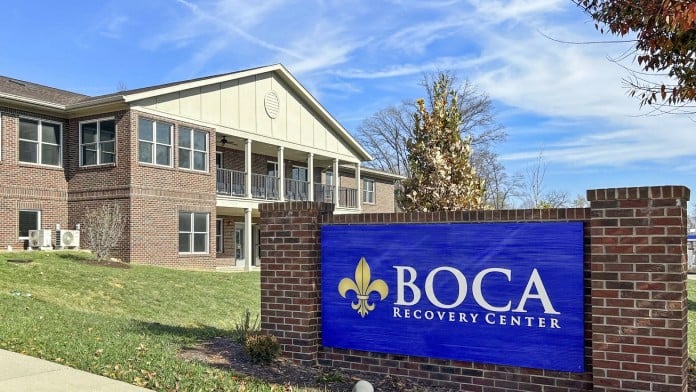
6 6 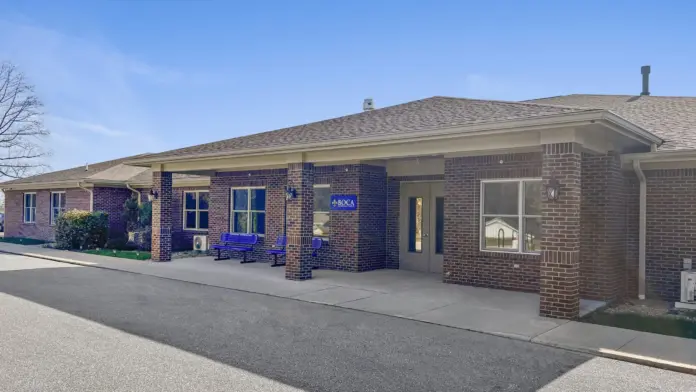
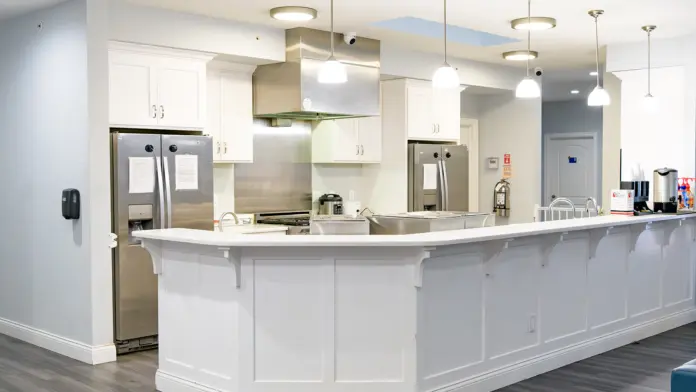
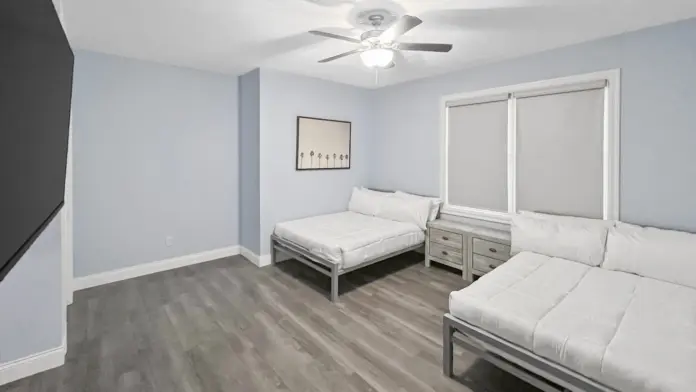
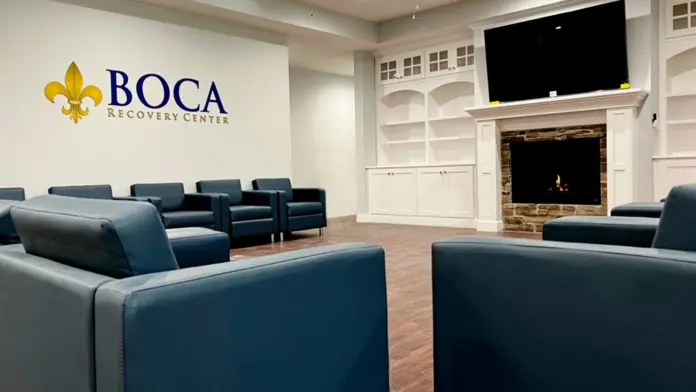
|
1
Top 10 Rehab in AZ
Rehab Score
Our Rehab Score is designed to make it easier for you to find the best treatment centers. We combine overall ratings with recent feedback to create a score that reflects a center’s quality right now.
8.90 / 10 | Soberman’s Estate, located in Cave Creek, Arizona, is an alcohol and drug rehab center that provides addiction treatment services to adult men, professionals, and public figures. They are a discrete, luxury rehab for individuals aged 30 to 80 years old. This location caps their treatment center at ten men at a time. As one of leading inpatient re | Treatments Programs Payment Options | Soberman’s Estate was everything I needed for my recovery. The staff, the program, physical activity and culinary experience were top notch and essential. The program is well designed and worked better than I expected. The staff is remarkable – professional, considerate and genuinely caring. My time there and being removed from alcohol for five weeks was everything I needed to remove my craving for alcohol. Soberman has changed my life in ways I never could have imagined. I feel confident, secure and grateful for my new life. I have reconnected with my family and friends. Thank you Soberman.
George B.
3 months ago
Yes, very professional staff, treatment, therapist, chefs were good! even the home cook did the best she could, and loved the horses of Course! Saturday morning hiking was fun to explore the trails of the nearby mountain area!
John E Williams
3 months ago
I had a great experience overall and would recommend it to anyone wanted to jump start their sobriety!!
Kevin Crawford
4 months ago
| 
5 5 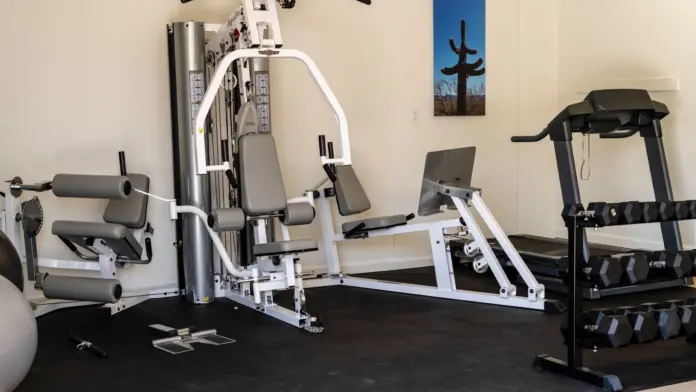



| |
1
Top 10 Rehab in CA
Rehab Score
Our Rehab Score is designed to make it easier for you to find the best treatment centers. We combine overall ratings with recent feedback to create a score that reflects a center’s quality right now.
8.80 / 10 | All In Solutions Detox in Simi Valley is one of the best ranked inpatient detox facilities in California providing safe, medically supervised care for individuals beginning their recovery from drug or alcohol addiction. As part of the All In Solutions Behavioral Health network, this facility serves as the first step in a full continuum of care. Cli | Treatments Programs Payment Options | This place saved my life. Great facility and staff. I was very nervous/scared to come here but the staff were very friendly and helpful. If you are thinking about treatment I highly recommend this place.
xCochise
3 weeks ago
This program dramatically help me get back on track in my recovery and was very well staffed and organized was an amazing experience.
Jacob Berghaus
1 month ago
I recommend calling the facility to confirm what the sales team tells you is true. The staff facility and people are great.
Amanda Cortes
1 month ago
| 
5 5 


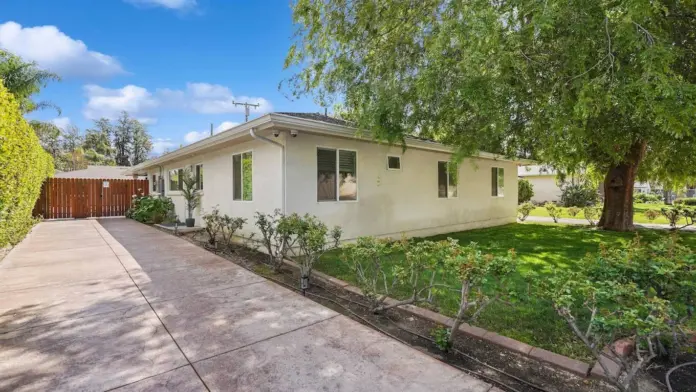
| |
1
Top 10 Rehab in TX
Rehab Score
Our Rehab Score is designed to make it easier for you to find the best treatment centers. We combine overall ratings with recent feedback to create a score that reflects a center’s quality right now.
8.80 / 10 | Symetria – Hurst Outpatient Rehab and Suboxone Clinic in Hurst, Texas, is a private drug rehabilitation clinic for adults. One of the best outpatient rehab centers in Texas, Symetria offers various withdrawal medications to help clients get started with their recovery journey. You’ll also have access to treatments such as the intensive outp | Treatments Programs Payment Options | Symetria is unbelievably amazing!!! The Hurst staff is phenomenal!!! I can’t imagine that another location has a better staff. A special shout out to Deborah, Benjamin, and Samantha of course. You all are doing amazing, amazing, selfless work. You all are very special to so many!!!
Vernon Godsey III
3 months ago
Huge shout out to the team at symetria who make me feel like family I appreciate everything they do and huge shout out to Osagie for helping me! He is AWESOME!!! I love you symetria❤️❤️❤️
Chloe Roseman
3 months ago
BEST PLACE EVER. I have tried various other doctors/clinics and none of them even begin to compare to this one. The staff here is absolutely amazing. I can’t even make a single complaint. Dr Son is the best as well. He explains everything and you truly feel like he understands you. I can proudly say this, this place saved my life. If you or someone you know needs help getting off opiates do it right the first time and come here. You won’t be disappointed. If you are specifically struggling with fentanyl please don’t waste your time with other ways. I have tried 6 other methods from lazer therapy to having the earpiece to suboxone. Methadone is the key to our current fentanyl crisis. This clinic makes recovery possible again!
Mason
4 months ago
| 
5 5 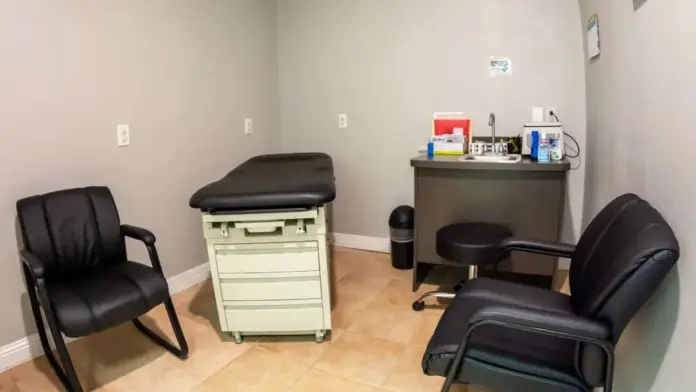
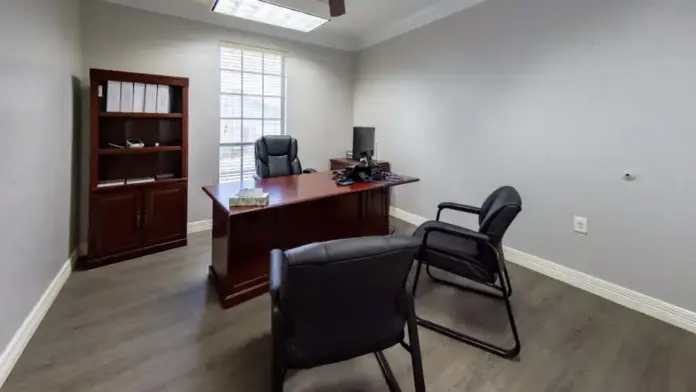

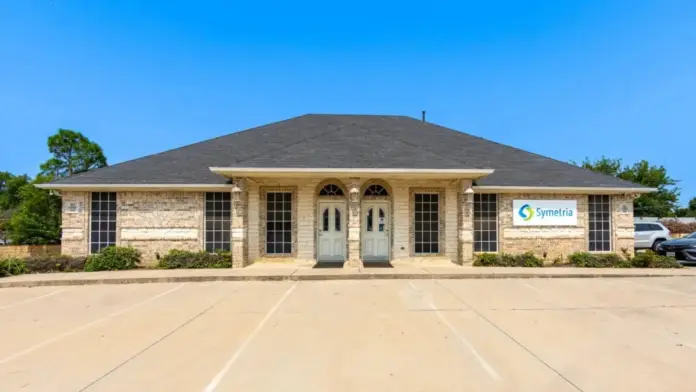
| |
Avenues Recovery Center at ClarksvilleAd This is an ad and Avenues Recovery Center at Clarksville is a paid advertiser. Paid advertisers may be listed first in search results. This ad may contain content provided by the advertiser. Rehab.com does not verify ad content or any reviews that are displayed. Learn More Clarksville, IN | Avenues Recovery Center in Clarksville, Indiana, is an inpatient drug and alcohol detox and rehab center. They strive to provide individuals receiving treatment with a loving environment and attentive medical care. You’ll be away from toxic environments and triggers and have the opportunity to focus on developing life skills that will support you | Treatments Programs Payment Options | View Website (930) 203-1947 | I highly recommend Avenues. The staff is absolutely amazing and very helpful. They treat you like family. Star, Jenny, Tarah, Paige, Monica, and both Amanda’s really helped me through.
Dana Key
2 weeks ago
It was a great experience great people thank you .
Jessica Fulkerson
2 weeks ago
This facility has been life saving. I am so grateful to be able to have gotten the help they had offered.
Nikki
2 weeks ago
| 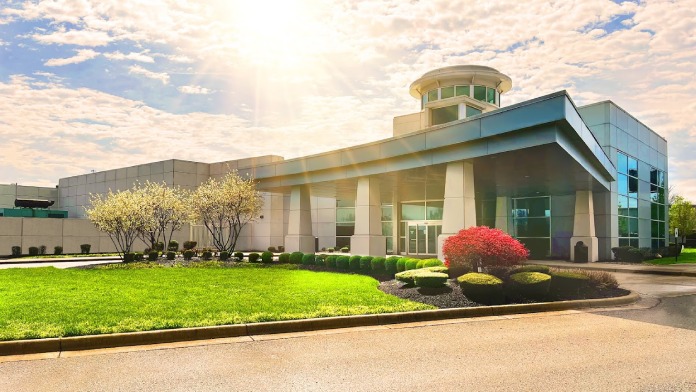
4 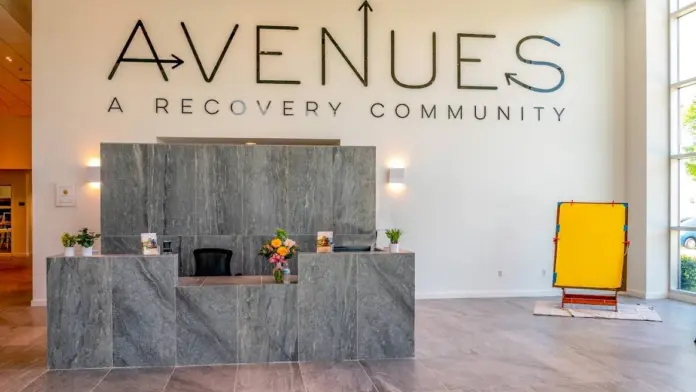
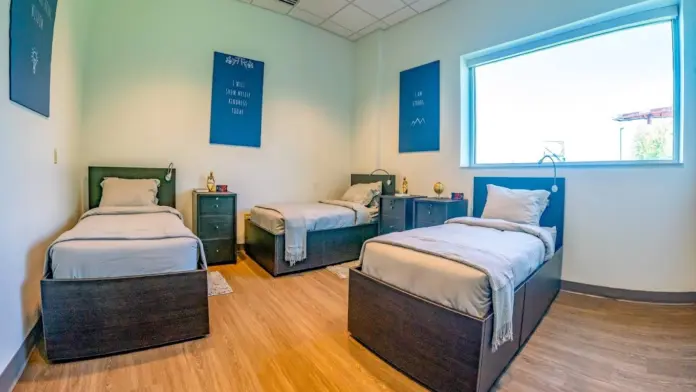
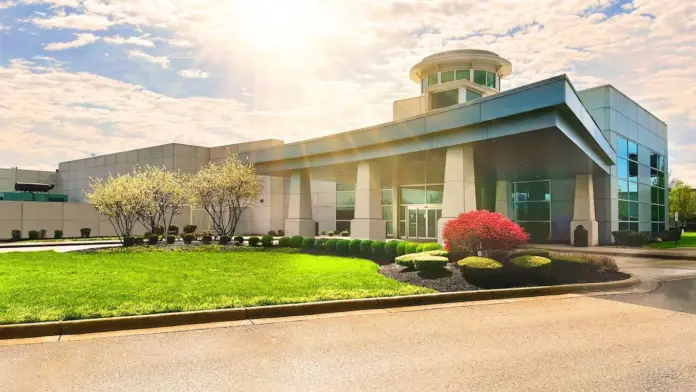
|
1
Top 10 Rehab in FL
Rehab Score
Our Rehab Score is designed to make it easier for you to find the best treatment centers. We combine overall ratings with recent feedback to create a score that reflects a center’s quality right now.
8.80 / 10 | All In Solutions Counseling Center is a mental health center and addiction treatment program in Boynton Beach, Florida. They provide a partial hospitalization program, an intensive outpatient program (IOP), an outpatient program, medication-assisted treatment, and mental health care for adults with substance use disorder. All In Solutions Counseli | Treatments Programs Payment Options | such a good facility. love all the staff! nicole is an awesome therapist!
Sydney Shaw
5 days ago
All In Solutions received me with open arms for the second time. The staff make sure you receive a high quality care treatment. I’m grateful for the love and care . God continue to bless everyone.Thank you for you do .
Jianil Richiez
1 week ago
This place changed my life. My therapist was great and all the staff was great.
Ash Leigh
3 weeks ago
| 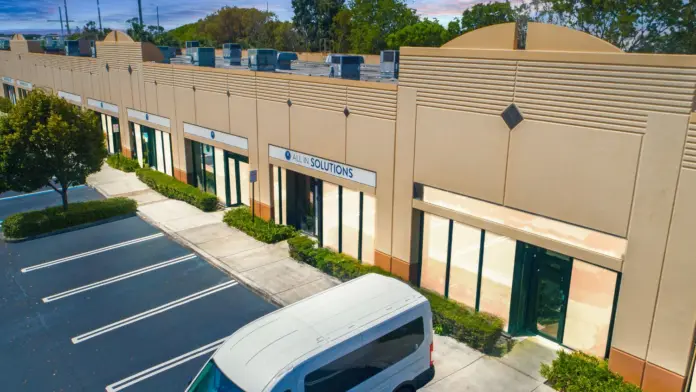
4 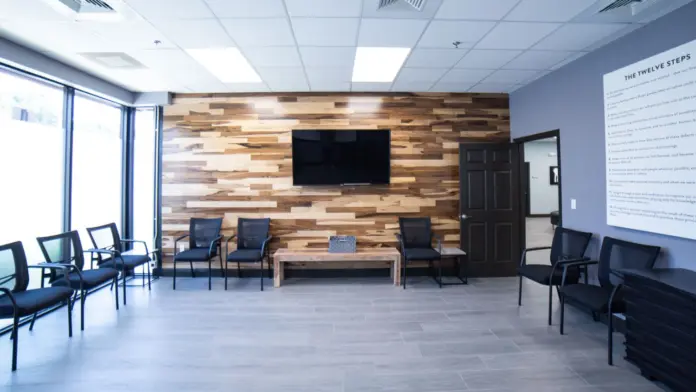
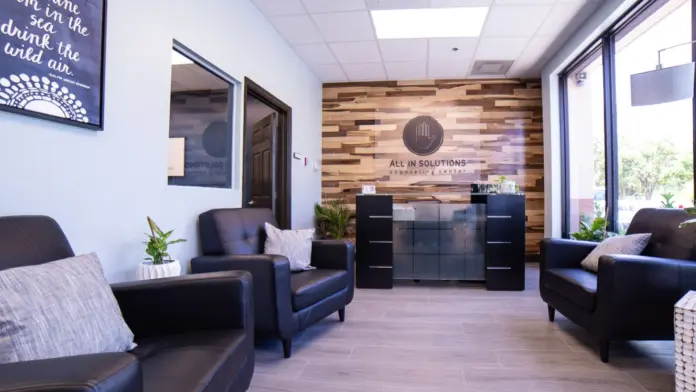
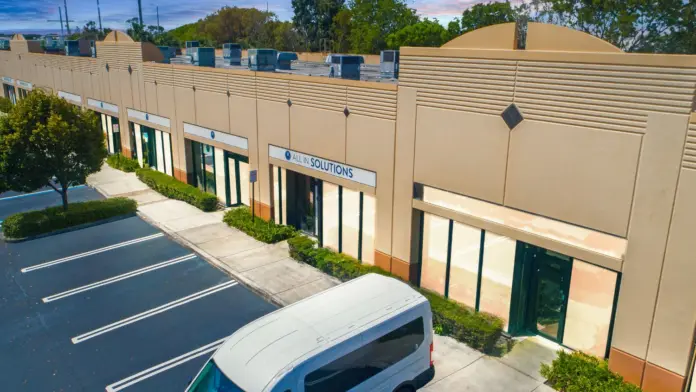
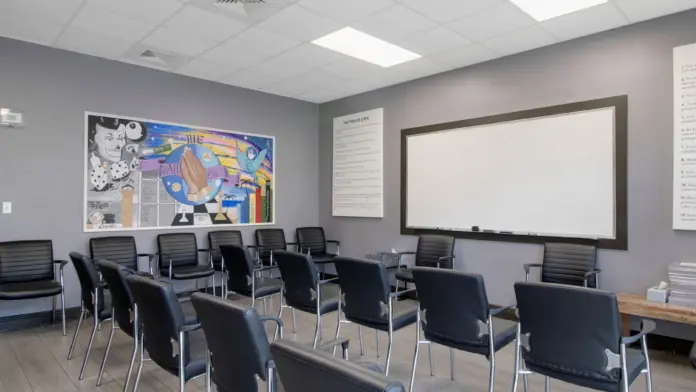
| |
1
Top 10 Rehab in NJ
Rehab Score
Our Rehab Score is designed to make it easier for you to find the best treatment centers. We combine overall ratings with recent feedback to create a score that reflects a center’s quality right now.
8.80 / 10 | Boca Recovery Center – Galloway is a drug and alcohol rehab in Galloway, NJ. They provide inpatient addiction treatment and medical detox. Boca Recovery’s New Jersey Drug & Alcohol Rehab, located in Galloway, New Jersey offers residential addiction treatment, medical detox, and medication-assisted treatment in an immersive treatment s | Treatments Programs Payment Options | My sobriety journey started at Boca. The staff members including Miss Tracey, Hannah and Kevin their alumni coordinator have completely flipped the trajectory of my life. I was immediately taken in with open caring arms and they made my detox process as comfortable as possible. During my stay, Joe was extremely helpful in helping me slowly gain my appetite back and start to feel stronger and was so attentive to my nutritional health. Nurse Patrick was so kind to me during my intake and Kevin still reaches out to me very often to check in and is so helpful in my recovery process. I owe gaining my life, my strength and my family back to Boca and I am eternally grateful❤️
Rianna Dean
3 weeks ago
Great facility with even greater staff. One of the best rehab/detox in South, NJ.
Donna Kratzer
1 month ago
Very comfortable stay
Will
1 month ago
| 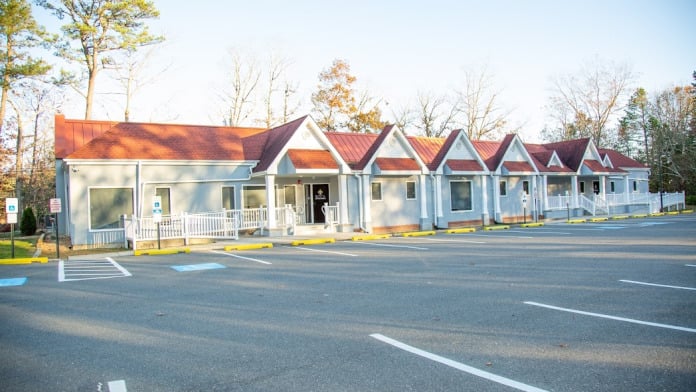
7 7 
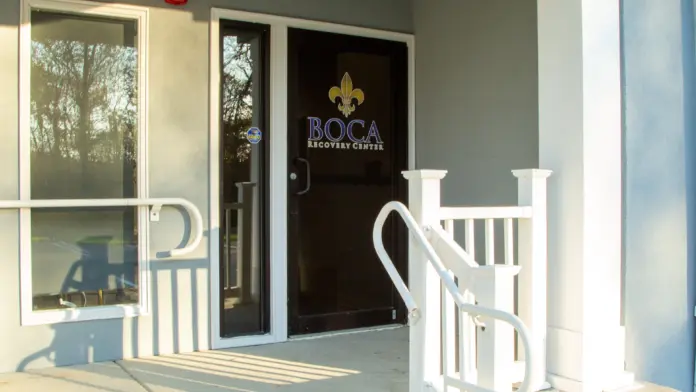
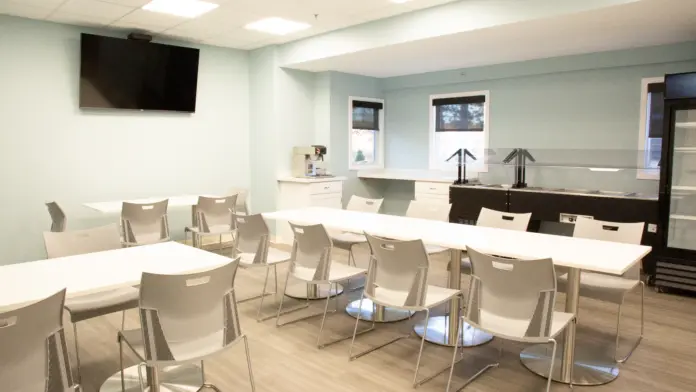
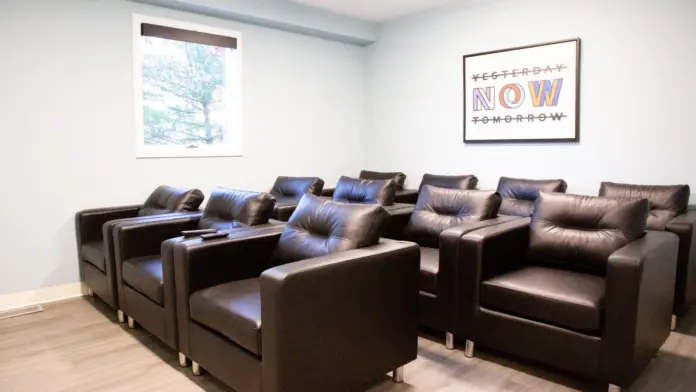
| |
1
Top 10 Rehab in TN
Rehab Score
Our Rehab Score is designed to make it easier for you to find the best treatment centers. We combine overall ratings with recent feedback to create a score that reflects a center’s quality right now.
8.77 / 10 | If you’re looking for a Christian-based men’s drug rehab center, S2L Recovery in Woodbury, Tennessee, might be the place for you or your loved one. Located at the top of Short Mountain, and overlooking the green hills of Middle Tennessee, this residential and detox clinic boasts a one-to-one staff/patient ratio so there’ll always be someone t | Treatments Programs Payment Options | Coming from Canada, I was hesitant. But God knew that S2L was exactly where I needed to be. At 64 years of age, I was able to discover my true identity, purpose, and mission in Christ. They help you in trying to get clean and sober for sure. But what S2L and the staff are all about is the Gospel of Jesus Christ. That’s why it is so successful.
TIM TANNER
3 months ago
I’ve had the privilege of seeing the life-changing impact this ministry has on countless men & I can’t recommend it highly enough! God has His Hand on this ministry & I’m honored to see the Lord work in these men!
Hunter Stanfield
3 months ago
Come here with a open mind and heart. It can and WILL change your life in all ways. Trust the process and trust God! Could go on and on about how amazing this place, I’ll forever be grateful!
Trevor Woodard
3 months ago
| 
6 6 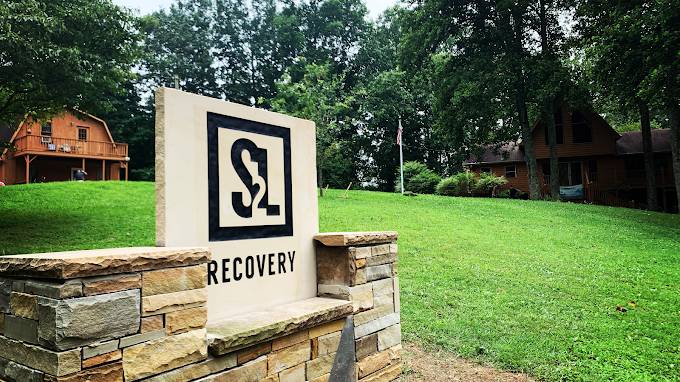



| |
2
Top 10 Rehab in CA
Rehab Score
Our Rehab Score is designed to make it easier for you to find the best treatment centers. We combine overall ratings with recent feedback to create a score that reflects a center’s quality right now.
8.76 / 10 | Located in Watsonville, California, Elevate Addiction Services provides alcohol and drug rehab services to men and women suffering from addiction. Their levels of care include detox, inpatient treatment, and outpatient treatment. One of the best ranked Outpatient treatment centers in California, Elevate Addiction Services provides a wide continuum | Treatments Programs Payment Options | I have been through other treatment facilities in the past; but Elevate has by far been the best experience I could’ve hoped for. Recovery isn’t just the ability to abstain from substances, but the capability of transforming from within. Not only has Elevate help me appreciate the things within me but everything around me as well. Thank you, Elevate for changing the trajectory of my life and my marriage!!
Michael Amodeo
1 month ago
Great place. The staff super nice amd very knowedgable about addictions. Its a very special place. Better than all others ive gone to. Definate thumbs up
Tyler Kerney
1 month ago
Our experience with Elevate Addiction Services has been truly life-changing. From the very beginning, the director, family liaisons, counselors, therapists, continuing care coordinators, house dad’s – we felt genuine compassion and care from everyone we had the pleasure of interacting with. We were kept informed of how our son was doing every step of the way. It never felt like we were alone in this. Everyone at Elevate was fighting for our son right alongside of us.
The love and compassion shown to our son meant everything. Today, he is living clean & sober, feeling confident in the tools and foundation Elevate equipped him with. Elevate welcomed him with open arms. Watching him complete the program and graduate has been one of the proudest moments of our lives.
We are so deeply grateful for Elevate and the loving and compassionate professionals who work there.
Without hesitation, we would highly recommend Elevate Addiction Services to anyone seeking help for themselves or a loved one. They helped our son find his way back.❤️
Kenny & Shelly Wright
1 month ago
| 
5 5 

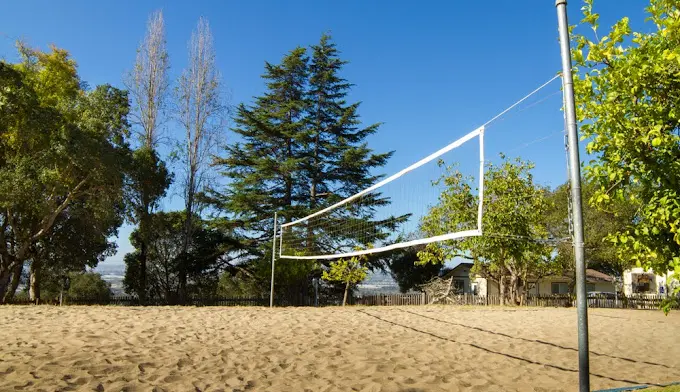

| |
2
Top 10 Rehab in NJ
Rehab Score
Our Rehab Score is designed to make it easier for you to find the best treatment centers. We combine overall ratings with recent feedback to create a score that reflects a center’s quality right now.
8.75 / 10 | All In Solutions Counseling Center is a mental health and addiction clinic in Cherry Hill, New Jersey. They provide outpatient addiction treatment and mental health care. They offer options like an intensive outpatient program, a partial hospitalization program, and medication-assisted treatment. All In Solutions Cherry Hill Drug & Alcohol Reha | Treatments Programs Payment Options | All In Solutions changed my life! I originally committed to 30 days but less than a week in extended to 90, the staff truly care about their clients and the therapy is top tier! Would’ve stayed longer if u could:)
Mack
2 weeks ago
The support group for caregivers has been life changing and such a meaningful experience. My loved one went through the program in February 2024. The therapists, staff and facility has been an integral part to his recovery and I could not be more grateful
Anthony Sbarra
2 weeks ago
The staff is very welcoming and kind. They are here to help you and will meet you where you are at. I’ve had a really good experience here very grateful for the staff and support I’ve gotten here would recommend for everyone!
Coby Trivitt
1 month ago
| 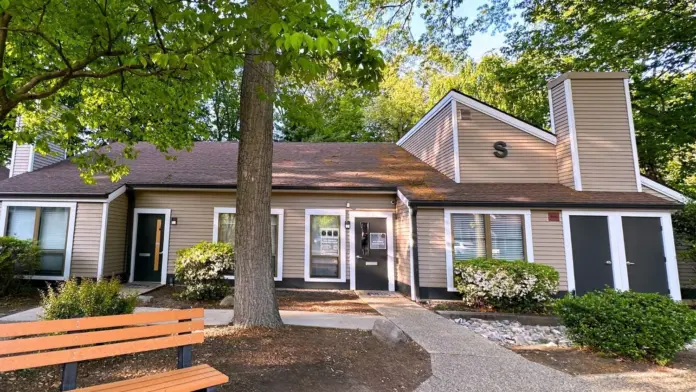
4 

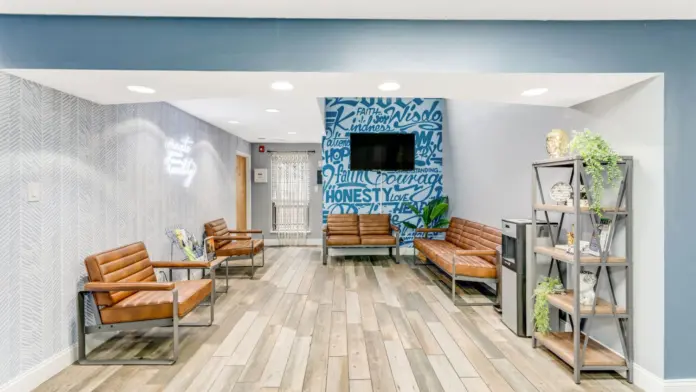
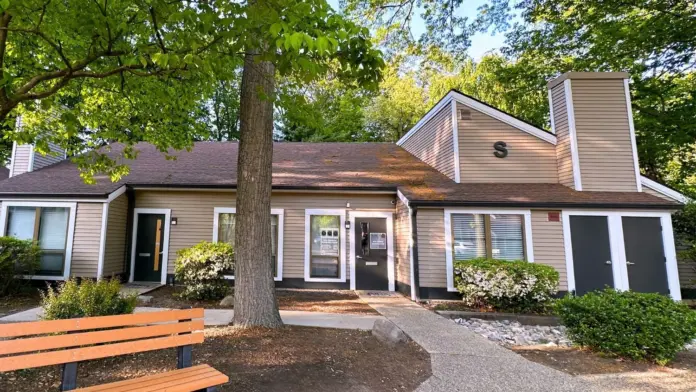
|




